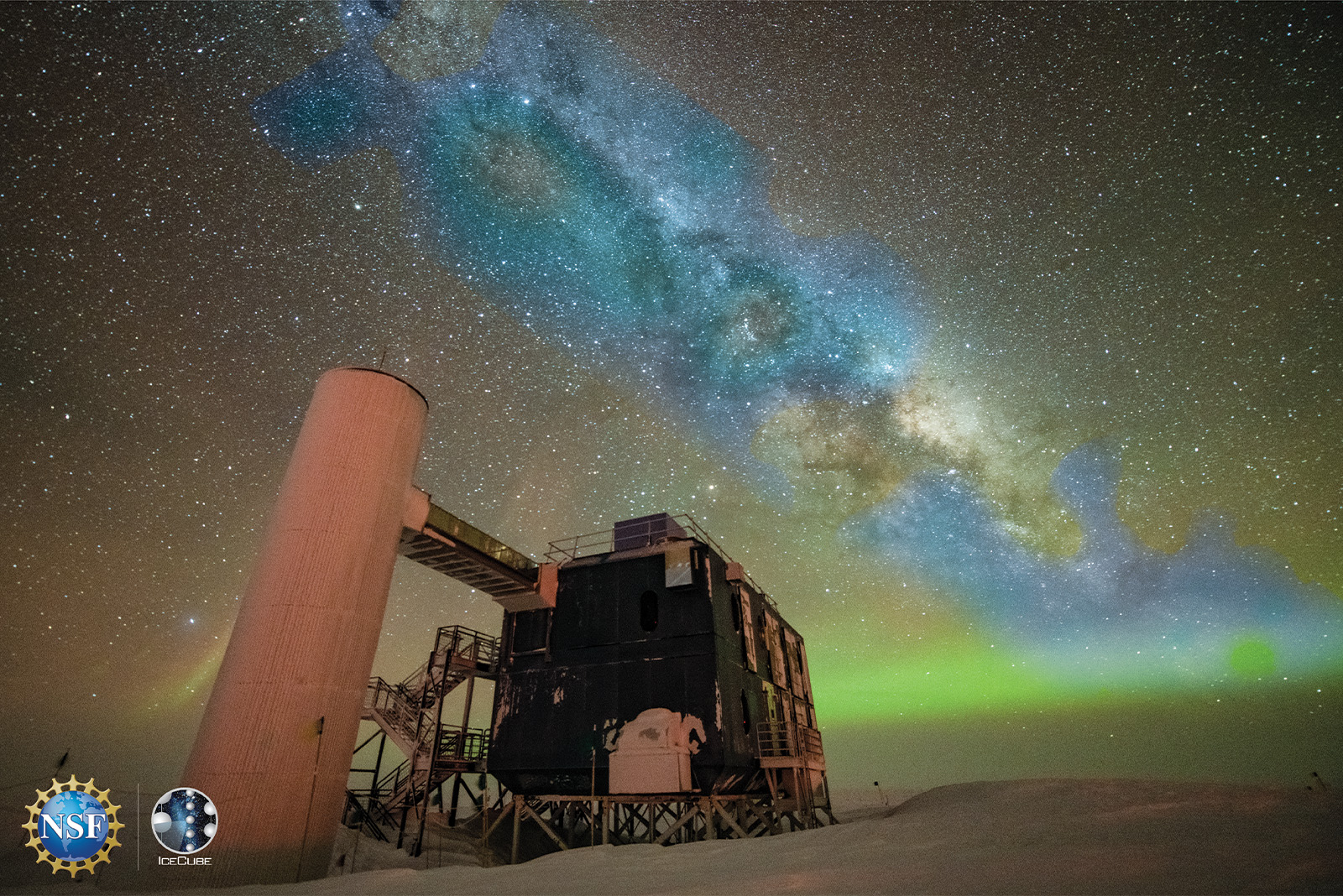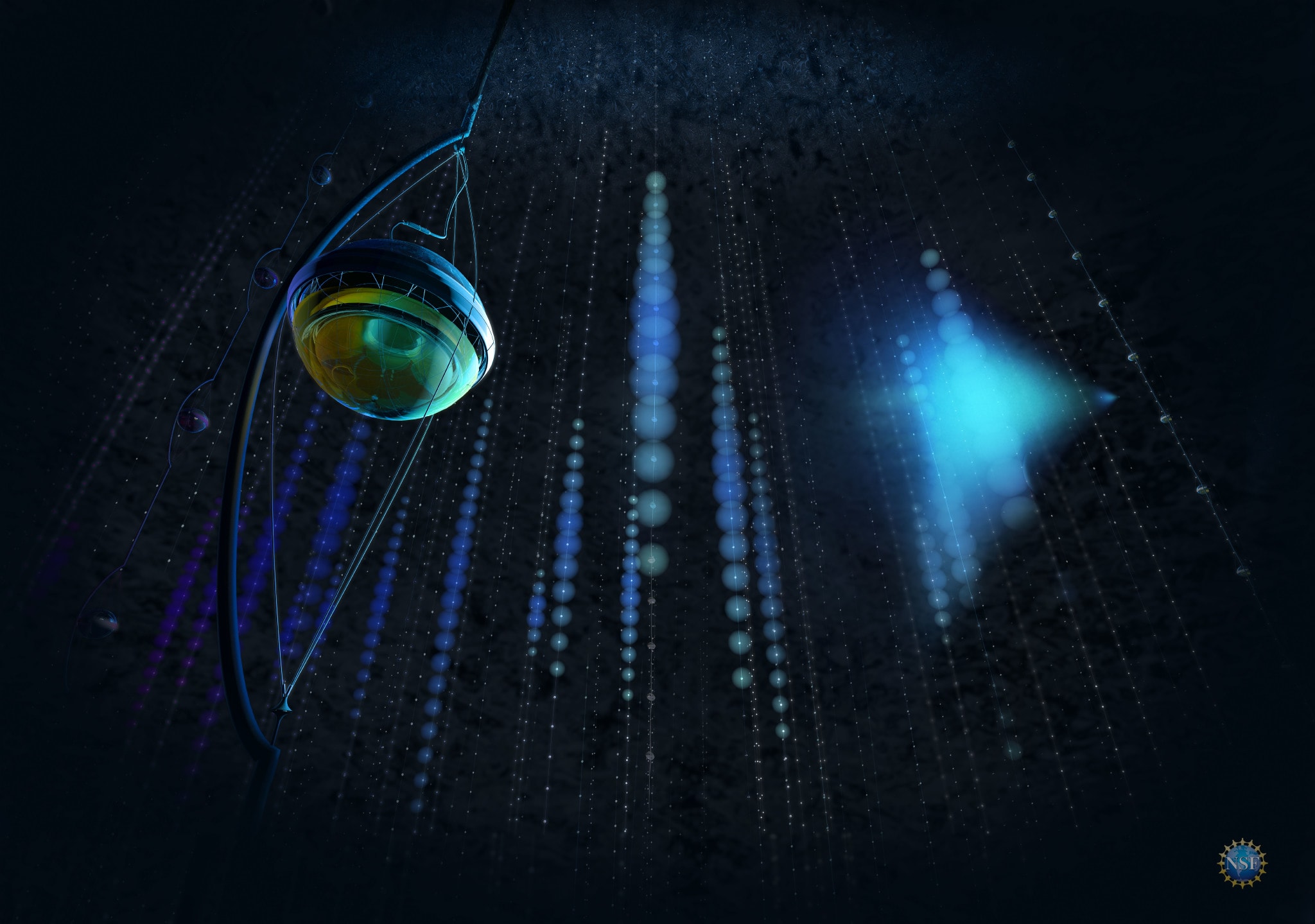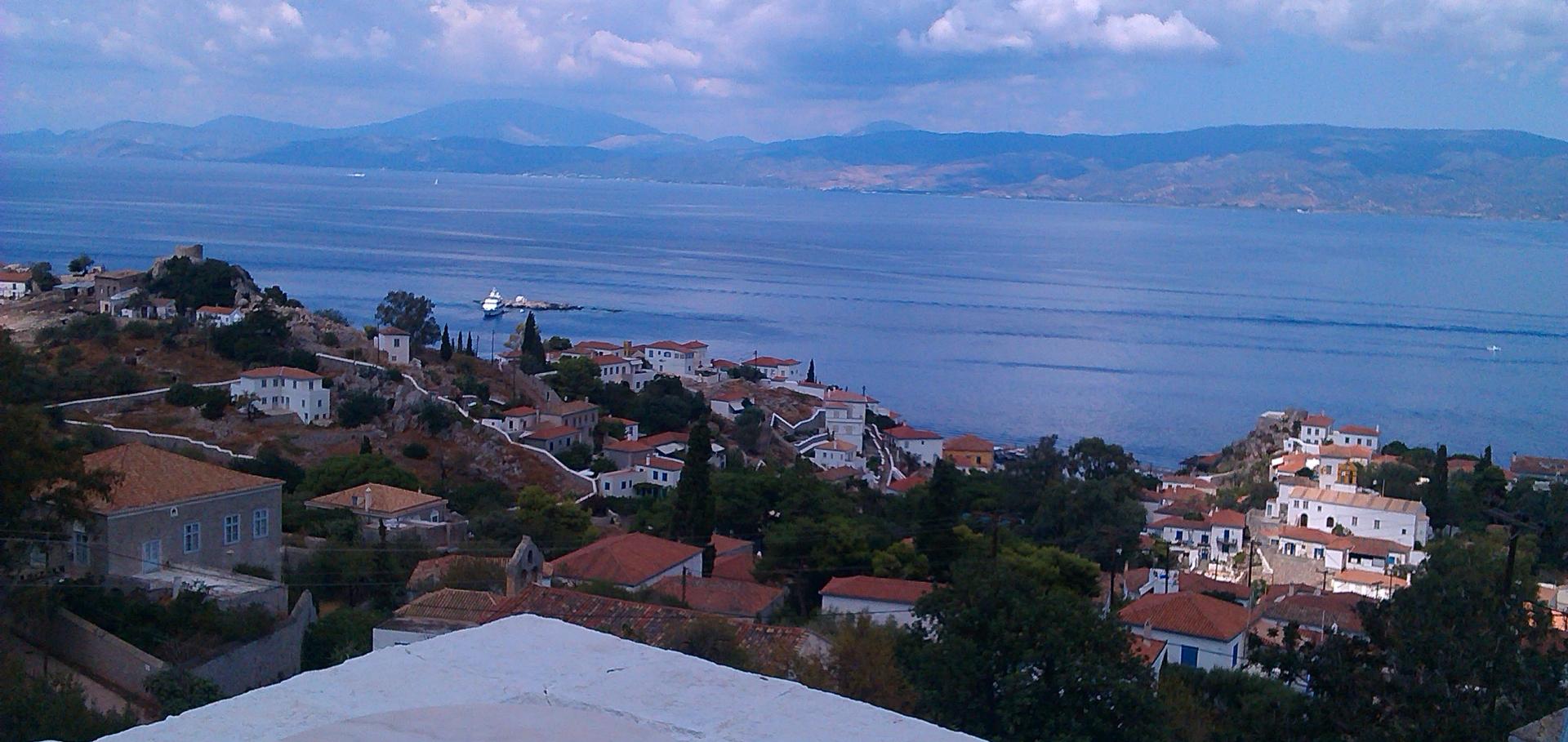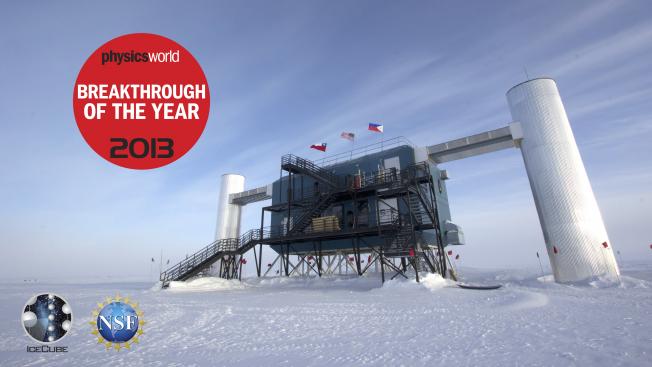IceCube @ Oxford
The IceCube project at the South Pole (not the rapper) transformed a cubic kilometer of transparent Antarctic ice into a Cherenkov detector that observes neutrinos from GeV to PeV energies. This experiment discovered very high energy cosmic neutrinos and identified the first cosmic sources, the blazar TXS 0506+056 and the active galaxy NGC 1068. IceCube is a multipurpose research facility which has also made precision measurements of neutrino oscillations and made important contributions to cosmic ray physics, dark matter searches, and even glaciology.
The University of Oxford (Institution Lead: Prof Subir Sarkar) has been a full member of the IceCube collaboration since it was formed in 2004. Oxford Physics hosted the first Collaboration Workshop in 2005

Publications
See full listing on: INSPIRE

News & Events
Name that neutrino! (Zooniverse project), 23 Jan 2024
A new window on the cosmos, 3 Jul 2023
Pancharatnam Lecture, 23 Feb 2023
Reconstruct the direction of neutrinos from the Universe, Kaggle competition, 2023
Detecting invisible messengers of the cosmos with a cubic kilometre of ice, Linacre News, 2022
90 Degrees South: Detecting Invisible Messengers of the Cosmos, Oxford Physics Events, 11 Jun 2021
Icecube: celebrating a decade of discovery, Oxford Physics News, 13 May 2021
IceCube detection of ‘Glashow resonance’ proves 60-year-old theory, Physics News, 10 Mar 2021
Scientists uncover cosmic particle accelerator, Oxford Physics News, 22 Feb 2021
The Particle Physics Christmas lecture, Oxford Physics Events, 7 Dec 2019
Antarctic telescope shows how the Earth stops high-energy particles, Oxford Univ. News, 23 Nov 2017
Icecube detects extra-terrestrial neutrinos, Oxford Physics Newsletter, Spring 2014
Seeing the high energy universe with IceCube, Saturday Morning of Physics, Oxford, 25 Jan 2014
IceCube detects high-energy extraterrestrial neutrinos, Oxford Physics News, 21 Nov 2013
Neutrinos put cosmic ray theory on ice, Oxford Univ. News, 19 Apr 2012
Neutrinos in the deep freeze, Oxford Science Blog, 19 Oct 2010
IceCube Collaboration Workshop, Oxford Physics, 21-24 Sep 2005

Press Reports
IceCube identifies seven astrophysical tau neutrino candidates,Phys.Org, 13 Mar 2024
First ever view of the Milky Way seen through the lens of neutrino particles, The Conversation 30 Jun 2023
Milky Way: Icy observatory reveals 'ghost particles', BBC News, 30 Jun 2023
IceCube detects high-energy neutrinos from an active galactic nucleus, Physics World, 8 Nov 2022
Glashow resonance is spotted in a neutrino detector at long last, Physics World, 17 Mar 2021
Incredibly energetic ‘ghost’ particles spotted coming from shredded star in major breakthrough, The Independent, 11 Mar 2021
We've spotted a neutrino blasted out by a black hole shredding a star, New Scientist, 22 Feb 2021
High-energy particle spotted speeding through Earth in major breakthrough, The Independent, 22 Feb 2021
IceCube identifies four galaxies as likely sources of cosmic rays, Physics World, 26 Feb 2020
Scientists capture mysterious ‘ghost particle’ in a giant IceCube in ‘triumph’ that changes how we see the universe, The Sun, 23 Jul 2018
Neutrino that struck Antarctica traced to galaxy 3.7bn light years away, The Guardian, 12 July 2018
High-energy 'ghost particles' absorbed by Earth, BBC, 22 Nov 2017
Mysterious 'ghost particles' that morph into different states could shed light on the true nature of dark matter, Daily Mail, 31 Jan 2017
IceCube telescope in Antarctica rules out sterile neutrinos, New Scientist, 9 Aug 2016
IceCube’s search for sterile neutrinos draws a blank, Physics World, 13 May 2016
IceCube scientists open a window on to subatomic astronomy, The Observer, 9 Oct 2015
Existence of cosmic neutrinos confirmed by Antarctic scientists, The Guardian, 20 Aug 2015
'Big Bird' space neutrino has highest energy yet seen, New Scientist, 14 Apr 2014
Cosmic neutrinos named Physics World 2013 Breakthrough of the Year, Physics World, 13 Dec 2013
Cosmic neutrino Muppets open unique window on universe, New Scientist, 22 Nov 2013
IceCube finds cosmic neutrinos at the South Pole, Physics World, 21 Nov 2013
IceCube detector finds first solid evidence for cosmic neutrinos, The Guardian, 21 Nov 2013
Telescope buried in Antarctic ice detects elusive neutrinos, The Telegraph, 21 Nov 2013
Neutrinos from the cosmos hint at new era in astronomy, BBC, 15 May 2013
IceCube catches high-energy neutrino oscillations, 6 Jun 2012
Cosmic rays: the truth is still out there … somewhere, The Observer, 22 Apr 2012
IceCube completed, Nature, 29 Dec 2010
'Telescope' buried a mile under the Antarctic ice to find source of cosmic rays, The Telegraph, 18 Oct 2010
The hunt for neutrinos in the Antarctic, The Guardian, 23 Jan 2010



